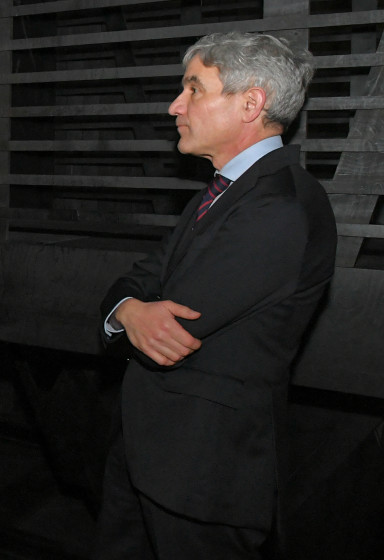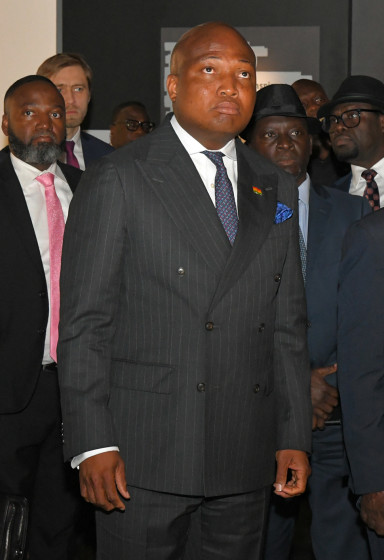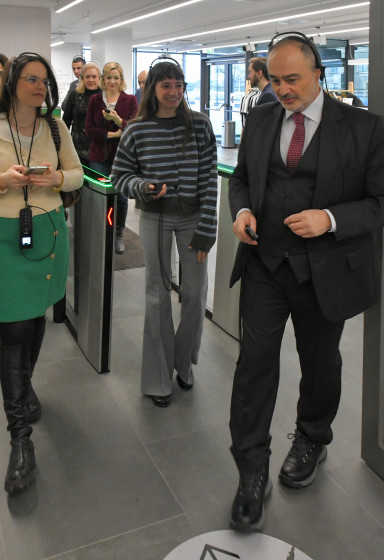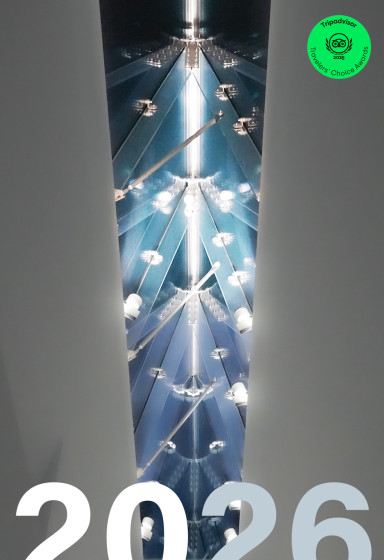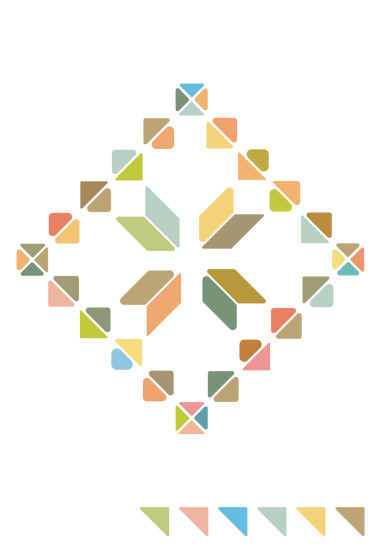Donate to Museum
Each donation helps to ensure the Museum's activities, allowing it to function and provide information for people from all over the world.
The Museum is grateful to each donor and invites everyone to contribute.
History expert discussion - Commemoration of Soldiers – the Zedelgem Example
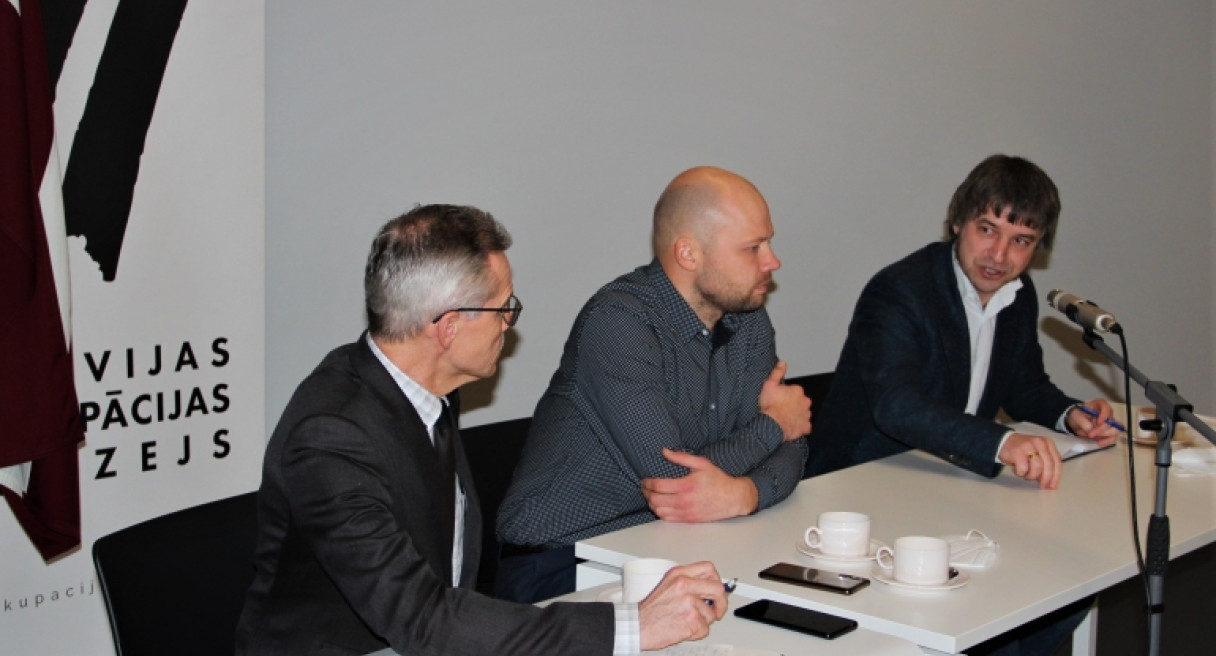
On 22 November 2021, a discussion of history experts was held in the renovated building of the Occupation Museum of Latvia in Riga. The discussion was about the “Commemoration of Soldiers – the Zedelgem Example”. The aim of the meeting was to intensify the understanding of the connection between the monument “The Latvian Beehive for Freedom” and a much wider historic and political content. The monument erected in Zedelgem, Belgium, is dedicated to the Latvian soldiers who did not lose faith in the freedom of the Latvian state while confined in the Zedelgem POW camp during the winter of 1945/1946.
During the discussion, the historian from the War Museum of Latvia, Jānis Tomaševskis, talked about “Latvian Soldiers in Zedelgem” and explained the fate and structure of the POWs. The paper by the historian from the Institute of Latvian History and the University of Latvia, Mārtiņš Kaprāns, Ph. D., was entitled “Battle about Zedelgem.” It analysed the debates about the future of the memorial. Other participants were staff members of the Occupation Museum and members of the Occupation Museum Association, the “Namejs” foundation, and representatives of the organisation “Daugavas Vanagi” (DV), and also the author of the memorial “The Latvian Beehive for Freedom” Kristaps Gulbis, Expert for the European Commission Creative Europe project.
The initial proposal to establish the memorial was made by the Zedelgem Municipality that suggested in 2015 to name a square in the town as the Brivibaplein (Freedom Square) and to erect an appropriate monument to commemorate the POWs. The project was successfully carried out in cooperation with the Latvian Occupation Museum Association and the DV organisation. The monument “The Latvian Beehive for Freedom” was opened in 2018. It is dedicated to the commemoration of the 12,000 Latvian soldiers who spent the 1946/47 winter in the POW camp. The project was financed by the Zedelgem Municipality and the Latvian Occupation Museum Association, who raised the money in a special fund raising campaign. In connection with this project the Zedelgem historian Paul Denys was awarded The Cross of Recognition in 2019 for special efforts that benefit the Latvian state.
Some Belgian community organisations do not agree with the placement of the memorial because they interpret it as glorification of the Nazis. They organised a campaign in the media and successfully appealed to the Zedelgem Municipality and other Belgian institutions. As a result, this year the name of the Brivibaplein has been changed, and the adjoining explanatory plaque has been removed. The plaque was an essential part of the monument. Questions have also been raised about the removal of the monument, its relocation, and a change of its meaning.
On 26 – 27 November, the City council of Zedelgem organised an expert seminar to work out suggestions about the future of the monument. Unfortunately the seminar was held in a closed session and the Occupation Museum was not invited to participate.
The Latvian Occupation Museum presents the experience under two totalitarian regimes as based on historic memory, research, and the position of Latvia’s legislator. An important element is the Saeima (Latvian parliament) declaration of 1998 about the Latvian legionnaires during WWII. It clearly contradicts attempts to attach collective guilt to the Latvian soldiers and postulates that “The aim of the soldiers who volunteered and who were drafted into the legion was to protect Latvia from the return of the Stalin regime.”
The Latvian Occupation Museum agrees with the conclusions of the author of the monument Kristaps Gulbs on the situation: “The future of the memorial depends on what the local people think and will continue to think about it. Firstly, the inhabitants of Zedelgem and surroundings towns. Those who decide will listen to expert and historian opinions. But in the end, the attitude of the population will be determinative. If the inhabitants accept the idea about the Latvian POWs – then it will remain.”
The Latvian Occupation Museum is a legitimate partner in any discussion about the monument in Zedelgem. However, this is not the sole responsibility of the museum. The Latvian Occupation Museum is ready to cooperate with various state institutions, public entities, organizations, media and research institutions in Latvia and abroad in order to find a constructive solution for the future of the monument “The Latvian Beehive for Freedom”. It is part of the museum's mission that is expressed in three parts:
- Remember what happened to Latvia, its people and land during the Soviet Union and the reign of the National Socialist German regimes from 1940 to 1991.
- Commemorate the unjustly sentenced and executed, the fallen in foreign wars, the victims of repressions and deportation, the refugees fleeing from occupation regimes, scattered in the whole world.
- To remind the world of the crimes of foreign power to the state, land and people of Latvia.
The Director of the Museum states: “The expert discussion ‘Soldier Commemoration: Zedelgem Example’ is only the first step in a broader discussion about the fate of POWs of various armies during WWII, their assessment at the European and world level, as well as the future of ‘The Latvian Beehive for Freedom’ monument.”
